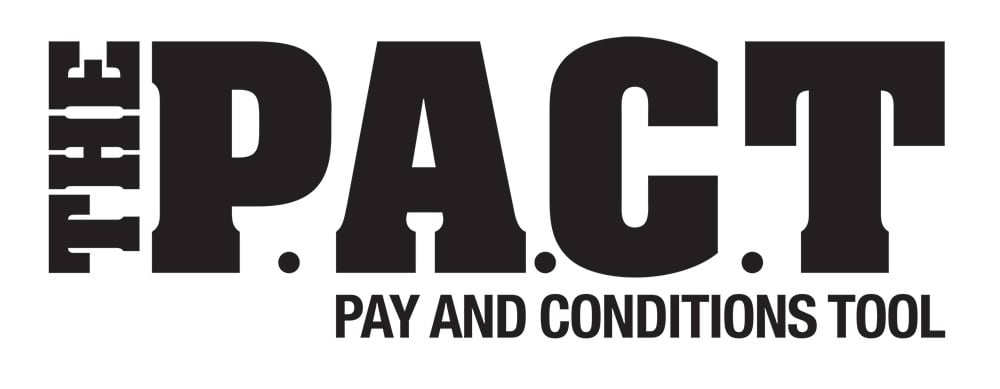Qualification
- Certificate III in Carpentry
Apprenticeship overview
4 years (or up to 6 years if you are part‑time).
90 days from the start of your training contract.
- Your training contract is a legally binding agreement between you and your employer.
- When you start your apprenticeship, your employer has 14 days to contact an Apprentice Connect Australia Provider, who will assist you and your employer to sign a training contact (if you are under 18 years of age, a parent or guardian must also sign it).
- Your employer should make every effort to enrol you with an RTO (including TAFE institutes) within 3 months of starting your apprenticeship, and let you know if it’s going to take longer.
- After your probation period (typically 90 days), any changes to your training contract must be by mutual agreement (if you are under 18 years of age, a parent or guardian must also sign it).
- You have rights under the law – before agreeing to any changes or cancelling your training contract, you can get advice from the Apprentice Helpdesk, your Apprenticeship Support Officer, or your union.
- Your training contract means your employer agrees to meet requirements, including providing appropriate supervision, providing work that matches your qualification, and giving you time off work for RTO training.
The Victorian Registration and Qualifications Authority (VRQA) ensure apprenticeships in Victoria run properly for both you and your employer. You can also contact the VRQA if you think your employer is not meeting their responsibilities.
Wages and conditions
The first thing you need to know is whether you are covered by an award or an enterprise agreement. You will only be covered by one of these at a time.
An award is a document that outlines minimum pay rates and conditions of employment, including entitlements such as pay, hours of work, rosters, breaks, allowances, penalty rates, overtime, and other conditions.
An enterprise agreement sets out minimum employment conditions and applies to one business or a group of businesses, and are sometimes called ‘EAs’ or ‘EBAs’.
Your training contract should say which award or enterprise agreement applies to you. Your employer can help you find your award or enterprise agreement.
Carpentry apprentices are usually covered by:
You could be under a different award, or you could be under an enterprise agreement. If unsure, check your training contract, confirm with your employer, or visit Find my award or Find an enterprise agreement.
You have the right to be paid correctly for your work.
As an apprentice or trainee, you can only work full-time or part-time, you cannot work or be paid as a casual.
If you are under an award, you can find out your current minimum pay rates using the Fair Work Pay and Conditions Tool. Minimum pay rates may change over time, so always check the Pay and Conditions Tool for the most up to date information.
If you are under an enterprise agreement you can check this by reading your agreement.
Based on your award or enterprise agreement you may get a higher pay rate for working at particular times of the day or on certain days of the week. You may also get allowances, other entitlements, or reimbursements for fees and textbooks.
For more information you can visit these Fair Work pages:
- Minimum wages
- Find my award or Find an enterprise agreement
- Overtime pay and When overtime applies
- Allowances
- Reimbursement of TAFE fees and textbooks
- P.A.C.T Pay Calculator
- Pay guides
If you don’t think you are being paid correctly you can contact the Fair Work Ombudsman.
Workplace health and safety
Your employer must:
- Enforce zero tolerance for bullying and discrimination.
- Give constructive feedback and recognition for good work.
- Treat you fairly and respectfully.
- Provide a health and safety induction when you start and at each new site, including instructions on safety gear and equipment.
- Assign an experienced supervisor to teach you safe work practices.
- Adjust supervision levels to match your stage in training.
- Answer your safety questions and respond to concerns.
You must take reasonable care of your own health and safety – and take care of others around you.
You must:
- Follow all workplace safety policies and procedures.
- Attend health and safety training and follow all instructions and advice.
- Use equipment and personal protective gear provided by your employer
- Report hazards to your employer.
- Notify your employer immediately about any incidents or injuries.
You should report any injury to your manager as soon as possible. You have 30 days from the injury date to report it to your manager. You should do this in writing. Your employer must then notify their WorkSafe agent. The earlier you report it, the earlier you can get treatment and start your recovery.
For more information, including financial supports available, visit WorkSafe Victoria.
Are you a Union member? You may be able to get free help if you are injured at work and your Union is assisted by Union Assist. Find out if your Union is on the list for free help on the Victorian Trades Hall Council’s website.
Visit WorkSafe Victoria for a list of actions you may take if you have experienced bullying at work or left a job because of bullying. WorkSafe Victoria's Advisory service can provide information on:
- Bullying and how to prevent it.
- How to raise the issue of bullying in the workplace.
- How to initiate a workplace intervention by a WorkSafe inspector, if appropriate.
The Apprentice Employee Assistance Program can also help you with strategies to deal with difficult workplace situations.
WorkSafe is the regulator for workplace health and safety in Victoria. You can contact WorkSafe if you have concerns about your health and safety and you can do so anonymously if you feel unsafe and do not want to give your name.
Contact WorkSafe Victoria:
- call 1300 136 089
- visit WorkSafe Victoria website
Finishing your apprenticeship
Once you have completed your required training the Victorian Registration and Qualifications Authority (VRQA) will automatically mail your trade paper.
Get help and wellbeing support
Apprentice Helpdesk
The Apprentice Helpdesk provides information, guidance and support for questions or concerns about apprenticeships or traineeships in Victoria.Apprenticeship Support Officers
Apprenticeship Support Officers (ASOs) help apprentices get the most out of the apprenticeship system. They can advise on a range of matters, including wages, training, safety and wellbeing.Apprentice Employee Assistance Program
Free, confidential counselling and coaching for Victorian apprentices and trainees—no referral needed. Support for health and wellbeing via an independent provider.Apprentice Connect Australia Provider
Get free support with job-matching, paperwork, and training while you complete your apprenticeship.Australian Apprenticeships
Find support, resources, and information to help you start and complete an Australian Apprenticeship.Schools, TAFEs and Universities
Talk to your careers counsellor to explore job pathways and connect to career services.Skills and Jobs Centres
Visit your local Skills and Jobs Centre for free advice on apprenticeships, traineeships, or career changes—no student ID needed.Victorian Skills Gateway
Find courses and training that match your career goals with the Victorian Skills Gateway.Centrelink – Youth and Student Services
Apply for payments like Youth Allowance, ABSTUDY or Austudy while in training.Moneysmart (by ASIC)
Tools and advice for budgeting, managing debt and planning your financial future.No Interest Loan Scheme (NILS)
Provides small, no-interest loans for people on low incomes to help with education, tools or essential costs.Translating and Interpreting Service (TIS National)
Free interpreting support for non-English speakers when accessing government services.National Relay Service (NRS)
For people who are Deaf, hard of hearing or have a speech impairment.Federation of Community Legal Centres
Offers free, confidential legal support across Victoria.Victorian Aboriginal Legal Service (VALS)
Provides culturally appropriate legal support for Aboriginal and Torres Strait Islander people.Working Women’s Centre Victoria
Offers legal advice and support for women and non-binary people experiencing workplace issues.
Headspace
Get 24/7 crisis support and suicide prevention.Beyond Blue
Access mental health advice and 24/7 counselling.Lifeline
Get 24/7 crisis support and suicide prevention.MensLine Australia
Talk to a counsellor about mental health and relationships.R U OK?
Start conversations to support mental wellbeing.13YARN
24/7 national crisis support line for Aboriginal and Torres Strait Islander people.1800RESPECT
Get support for domestic, family and sexual violence.Empowered Women in Trades (EWIT)
Provides mentoring, training and networking for women in trades.Tradeswomen Australia
Supports women in skilled trades through advocacy, training and inclusive workplaces.Fair Work Ombudsman
Check your pay and entitlements through the Fair Work Ombudsman.The Pay and Conditions tool (PACT)
Use the Fair Work Ombudsman's Pay and Conditions tool to check your pay, calculate entitlements like allowances and overtime, and compare it to what you actually earn.Wage Inspectorate Victoria
Learn about your rights under Victoria’s workplace laws, including child employment, long service leave, and contractor obligations, via the Wage Inspectorate Victoria.WorkSafe Victoria
Stay safe on the job with advice from WorkSafe Victoria, the state’s workplace health and safety regulator. They also provide support if you get injured at work.Victorian Registration and Qualifications Authority
Registers training contracts, approves employers, and ensures obligations are met. Works to prevent harm and resolve issues through advice and workplace visits if needed.Young Workers Centre
Free advice and education for workers under 30 about their workplace rights.
Unions
Unions represent employees in the workplace and provide their members with information, advice and support.
Not sure which is the right union for you? Australian Unions has an online form which can guide you through a few steps to help identify the right union for you.
The AWU is a large, diverse union, representing a variety of workers across a broad range of industries, including construction.
Visit Australian Workers Union (AWU)The CFMEU represents workers' rights in the construction industry including carpenters, joiners, plasterers, tilers and bricklayers.
Visit Construction, Forestry and Maritime Employees Union (CFMEU)
Helps workers under 30 understand their rights at work and access support.
Visit Young Workers Centre
Updated

